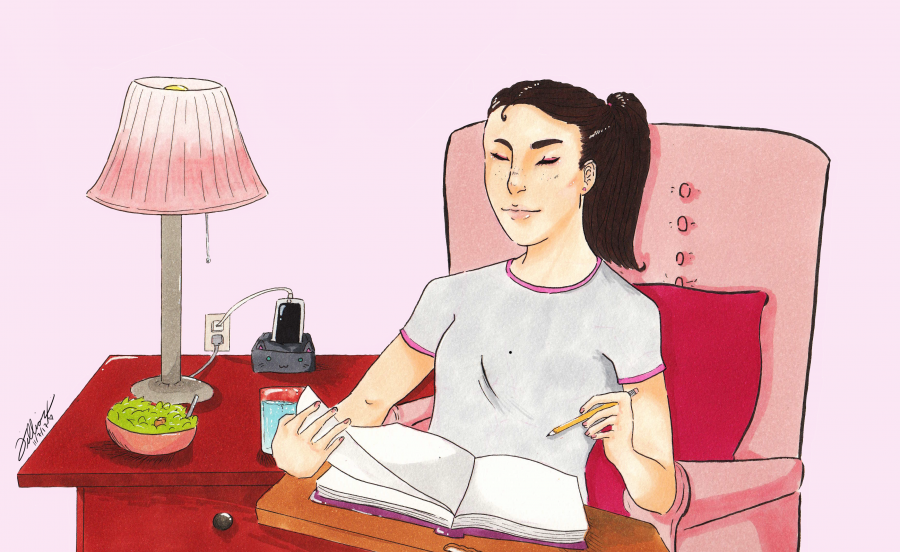Practical self care in a world of bath bombs and face masks
January 24, 2018
Amidst a sea of homework, friends and extracurriculars, self-care is often put on the backburner in order to stay afloat. Students’ perception of “self-care” tends to be skewed to a monthly ritual where one lights a candle and puts on a face mask—and then back to normal life until the next time. While this ritual can be a part of caring for yourself, staying healthy both mentally and physically requires a series of habits incorporated into everyday life.
Both the “self” and the “care” part of self-care are equally important; if there were one singular answer to how to take care of yourself, what you would find in the following is a clearly laid out self-care routine. However, self-care—emphasis on the “self”—is an incredibly individual process. This individuality, paired with busy lives focused on what is accepted by society, is what makes self-care so difficult.
The difficulty of self-care is often met with confusion and apathy, then shoved aside for a later date. After trying to convert their entire life into a constantly peaceful haven, people quickly give up and revert to their old lifestyle. This approach is similar to waking up to run a marathon without any training. In order to run the marathon of self-care, you need to incorporate it little by little into your lifestyle.
The simplest place to start is by recognizing which of your most basic survival needs are and aren’t being met. These needs can be generally summed up to food, water, and sleep. While basic, these needs are not always simple to achieve. Poverty and even high workloads hold the potential to impede on one’s ability to meet their needs.
The need for food and water can be difficult to meet. With low incomes, eating disorders and lack of motivation rampant in students, finding the time, energy, money and ability to eat and drink is difficult. Choosing the food you are able to eat needs to be done wisely. Making sure the foods you do eat are nutritious and have protein is the first step in staying healthy.
No matter your method, your water intake needs to be high enough to survive in order to keep your body healthy and increase your mental well-being. University of California Davis states some of the mental effects of not consuming enough water include “brain fog, afternoon fatigue, focus issues, depression, anger, exhaustion, headaches, sleep issues, stress and a lack of mental clarity and acuity.”
To ensure that your brain is working to its full potential, it is recommended to drink between 11 and 16 cups of water per day. Apps that track your water intake or creating a schedule for when you drink can be effective ways of getting enough water. Drinking water won’t cure anyone of mental illness, but it can be a factor in increasing wellness.
Students with heavy workloads and packed schedules often face sleep deprivation as a result. Sleep deprivation can cause delirium in the short term but creating a consistent sleep schedule where you are getting enough sleep has a plethora of benefits in the long term. You can find more ways to get more sleep here.
Exercise is another crucial element in caring for yourself. If exercise is not something that is a daily endeavor in your daily life, try to make it into one, even if in the smallest sense. This could mean taking your dogs for a walk, having a three minute dance party or any activity that will keep you up and moving.
There are so many tools that can be personalized to help you care for yourself, but the most important part is you care enough to make it happen. Start with necessities for survival and work up to a place where you are healthy and cared for every day; taking it one step at a time.












